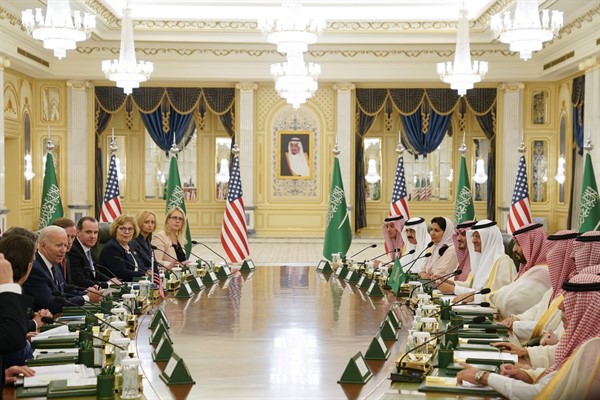U.S. President Joe Biden’s “summer of diplomacy” continued last week, this time with stops in the Middle East, where he visited two long-term U.S. regional partners, Israel and Saudi Arabia. But unlike recent stops in the German Alps for the annual G-7 meeting or in Madrid for the NATO leaders’ summit, Biden’s meetings in Riyadh, in particular, generated a great deal of criticism and even opprobrium.
Ahead of the trip, critics had warned that visiting Saudi Arabia went directly against Biden’s campaign promise to no longer give the kingdom a “blank check” when it comes to its human rights record. Unease in Washington over U.S. ties with Saudi Arabia is not new. But it has grown into moral outrage due to the Saudi government’s involvement in the 2018 murder of Saudi dissident journalist Jamal Khashoggi, as well as the humanitarian crisis in Yemen created by the Saudi-led coalition’s war effort there.
U.S. Sen. Bernie Sanders remarked, “I just don’t believe we should be maintaining a warm relationship with a dictatorship like that.” Others recognize the need to further U.S. interests in the region, but are calling the trip the “wrong kind of realpolitik.” At best, some said that it “felt wrong” even if the logic of doing so seemed “right.” Indeed, Biden went so far as to defend the visit in a pre-trip Washington Post op-ed, stating “it will advance important American interests,” including stabilizing the flow of oil from the region and preventing religiously motivated extremism.

